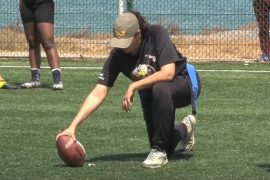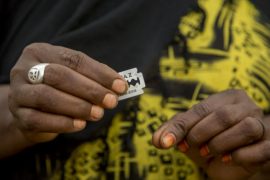By: John Namkwahe
Ismail Mohammed, 35, a resident of Mkunwa in Mtwara rural district and a peasant farmer of cassava and cashewnuts, had never before heard of gender equality and he didn’t have the slightest idea what the word ‘gender’ really means.
He is married to Mwanaasha Juma and the two have been blessed with two children; a daughter (10-year-old) and a son (6-year-old).
Due to lack of knowledge about gender equality, Ismail admits to committing a number of social injustices such as depriving his wife of her basic rights. Such a misguided attitude towards his wife consequently led to unending misunderstandings in the family. Ismail now regrets his former dictatorial demeanor and looks to God for forgiveness.
Ismail represents a number of men with the same overbearing attitude towards their spouses; an attitude that has seen women being deprived of their rights such as right of ownership, freedom of participation, freedom of expression among others.
“I am very ashamed of my deeds and I ask God for forgiveness. I remember the moments when I and my wife used to walk home from the farm. All I ever held was a knife, while my wife was responsible for carrying a bunch of firewood, a child on her back and a twenty litre gallon filled with water. It is a long walking distance from the farm to home,” he solemnly recounts.
Ismail’s overbearing nature wasn’t confined to farming duties; during harvesting, after selling the products, Ismail dictated the financial terms of the earnings. He was the family’s sole financial controller and made all decisions on family expenditures. “I never allowed my wife to participate in budget making; hence I was the only person to decide on all the family expenses. I controlled all the earnings and I never allowed my wife to question me over the expenditures,” he admits.
Ismail’s inconsiderate deportment however was challenged when in 2011 Care International Organisation arrived in Lindi and Mtwara.
He and other villagers participated in several gender classes about modern agriculture and gender related teachings. This marked a new dawn for women as the organisation was keen on improving the lives of people living in Mtwara and Lindi, particularly women, by fostering improved food security, income and resilience. This was all done under WE-RISE program.
The organisation is one among other NGOs, civil society organisations (CSOs) and private sectors that have reached a key milestone so far in empowering both men and women.
Other NGOs like Tanzania Gender Networking Program (TGNP) and the Eastern African Sub-regional Support Initiative (EASSI) have been playing a key role to harmonise national public hearings on gender equality and development in the regions.
Consolation for women who’ve experienced devastating treatment in the hands of their male counterparts is nothing to go by when looking at the broader issue of gender inequality in Tanzania. Women have for years been victims of reproachful acts that border on the unthinkable behind closed doors with their spouses.
Ismail, now a changed man, is thankful for having been given the chance to change his life and become a loving husband to his wife. “Through the project I have managed to acknowledge the importance of exercising gender equality in family level so as to give equal chance to women to own property such as land which wasn’t the case before,” he says, and adds; “everything has changed. I have now given my wife a piece of land which is approximately 3 acres so that she can use it for farming.”
Ismail has now become a responsible husband and he helps his wife with domestic activities such as fetching firewood from the forest and he sometimes takes their children to hospital.
His wife is pleased and she can now look forward to better days ahead following the transformation her husband has gone through.
Apart from participating in agriculture, Ismail engages in entrepreneurship activities to earn additional income to feed his family. This helps him support his wife in generating more income.
He also addresses his gratitude to Tanzania’s Police Force for its endless support to local people. The cordial relationship between the police and the public was made possible through efforts by Care international in Tanzania which played a key role in linking the local people in the regions with Police force through gender desk establishment.
Ismail advises other men to abandon a patriarch system of managing their families instead they must give their wives opportunities to participate and play an equal role in family affairs.
Women have for years fought for their rights, and with each passing year, we see an improvement on the respect for women’s rights. In urban setting, the fight for equal rights seems to penetrate a lot further and faster than rural settings where information is hard to reach.
Ikupa Magdalene (pseudonym), a resident of Kyela in Mbeya currently working in Dar es Salaam, airs her restlessness in the fight for her basic rights. Formerly married to one Eliakim Godfrey (pseudonym), she reveals that their matrimonial life was filled with constant arguments and at times physical abuse. She successfully ran away from the marriage and never looked back. In Dar es salaam she’s still trying to fill in the gaps in her life by doing odd jobs, but she confesses that this is a far cry from the torture she was subjected to when she was still married. “I hated my life back then; I find it difficult here, but for different reasons. I know I can come out of this situation. At least now I have the freedom to decide what I want for myself,” says a proud Ikupa.




